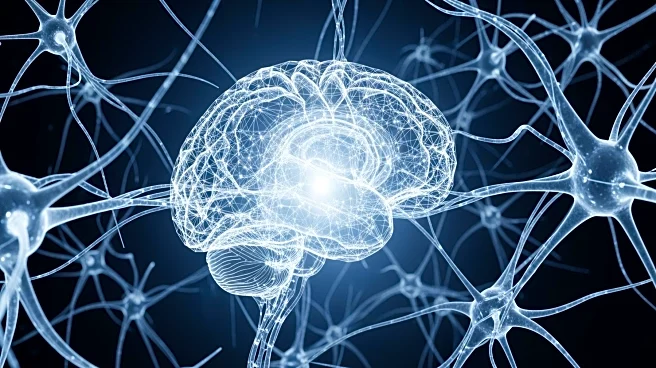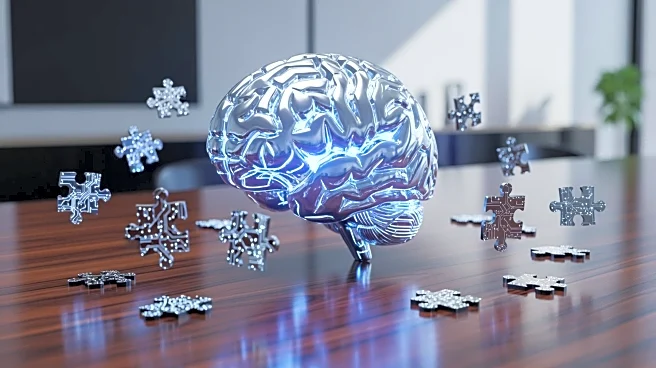What's Happening?
A study published in Cell Reports has found that individuals with higher fluid intelligence are better at forming structured cognitive maps, which are internal representations of spatial relationships between objects. Conducted by researchers Rebekka
Tenderra and Stephanie Theves at the Max Planck Institute, the study suggests that intelligence may be linked to how the brain encodes experiences, particularly through the hippocampus. Participants with higher fluid intelligence scores demonstrated stronger map-like encoding in the right hippocampus, indicating a clearer sense of spatial relationships. The study used brain imaging to observe participants as they learned object locations in a virtual arena, revealing that smarter individuals tend to organize information into relational structures.
Why It's Important?
The findings highlight the role of the hippocampus not only in memory and spatial navigation but also in organizing information to support flexible thinking. This ability to form cognitive maps may provide a foundation for solving problems in new contexts and drawing inferences from limited data. Understanding the neural basis of intelligence could lead to advancements in educational strategies and cognitive training programs. The study also opens avenues for exploring how relational encoding patterns might appear in other brain regions involved in reasoning and generalization.
What's Next?
Future research could investigate whether the principles of relational encoding apply to abstract relationships beyond spatial arrangements. Long-term studies may clarify how these abilities develop over time and interact with intelligence. Additionally, exploring the role of other brain regions, such as the prefrontal cortex, in structured information representation could provide further insights into cognitive processes.
Beyond the Headlines
The study's focus on relational learning involving spatial arrangements raises questions about its applicability to other types of relationships, such as conceptual or rule-based ones. The homogeneity of the study group, consisting of healthy adults, may limit the generalizability of the findings. Cross-sectional research cannot establish causality, leaving open the question of whether structured encoding contributes to higher intelligence or vice versa.














